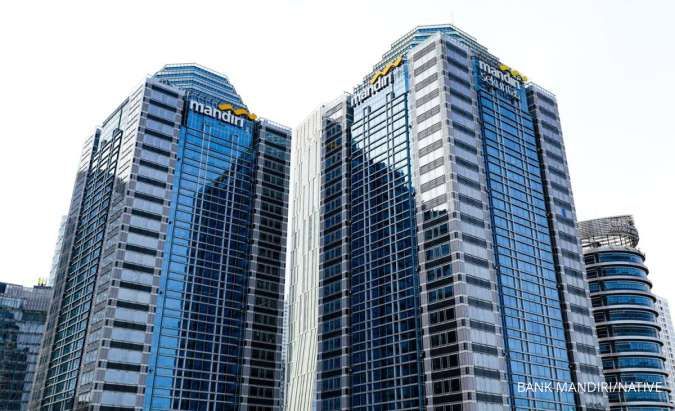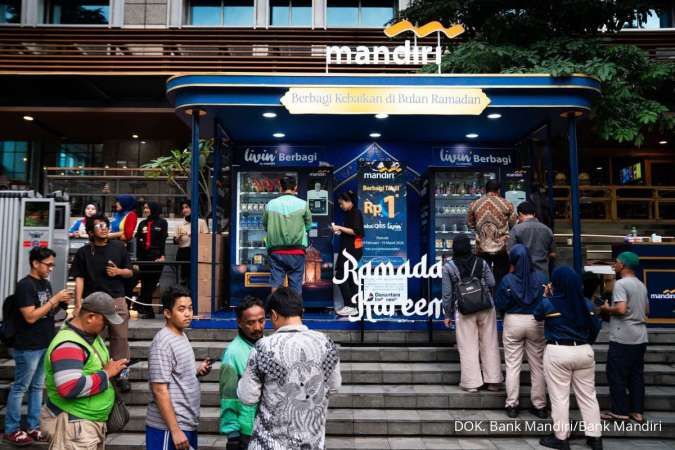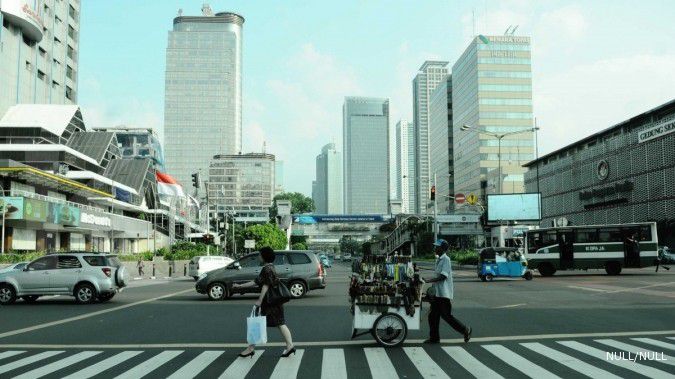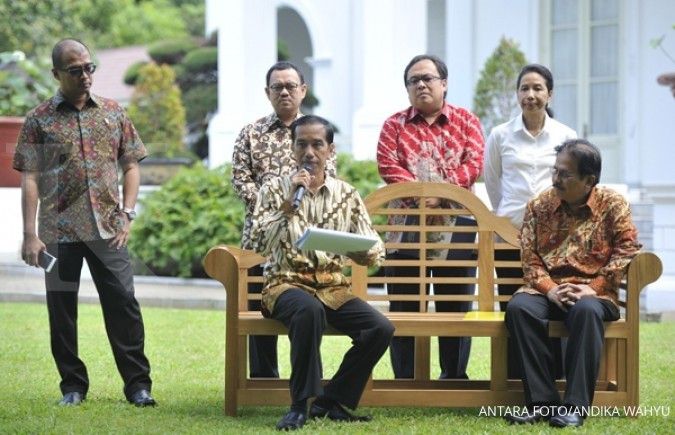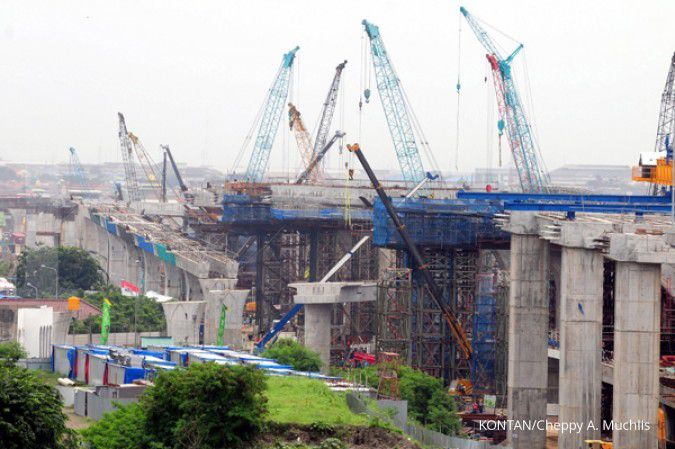JAKARTA. Indonesia’s economy might continue to see flatline growth in the first quarter of this year as corporate earnings reflect sluggish domestic demand, but infrastructure-focused government spending is expected to lift growth, according to ministers. Finance Minister Bambang Brodjonegoro said last weekend that the country’s gross domestic product (GDP) was unlikely to exceed 5 percent in the first quarter, similar to last year’s growth rate which was the slowest since 2009, due to weak demand in the real sector. Bambang, however, said he expected that government spending could help spur growth in Southeast Asia’s largest economy, especially on infrastructure projects that would start in the second quarter.
“What we need to do is accelerate budget realization and continue structural reform, such as offering better incentives. The acceleration will help trigger more fund injections to the economy so that purchasing power can be improved and attract investors to return,” Coordinating Economic Minister Sofyan Djalil explained. The local stock market has been on a losing streak since April 21, having fallen nearly 7 percent within the week-long period as investors were disappointed with unsatisfying first quarter corporate earnings against the backdrop of sluggish recovery of demand. A monthly survey conducted by ANZ and Roy Morgan shows that Indonesian consumer confidence fell 8.5 points to a level of 145.6 in April compared to March. Glenn Maguire, ANZ chief economist for South Asia, ASEAN and the Pacific, said confidence had fallen to levels unseen since the taper tantrums of 2013, when Indonesia saw significant capital outflows due to the US Federal Reserve’s plan to gradually withdraw its quantitative easing. “The ongoing depreciation of [the] rupiah, the fading of Jokowi’s star, a disappointing amount of rate cuts from the central bank as well as the failure of a domestic demand-led recovery to solidify all suggest that this downward phase in consumer confidence may still have some way to run,” he said. Global funds have been net sellers of Indonesian stocks for all but two of the past 15 trading days after the equity gauge climbed to a record this month, Bloomberg reported. The index has lost 2.3 percent this year, lagging behind an 11 percent gain by the MSCI Emerging Markets Index. Foreign investors sold a net US$131.7 million of the nation’s equities on Wednesday last week, when the Jakarta Composite Index (JCI) retreated almost 3.5 percent, the steepest fall in nearly two years. But in the government’s defense, other less-developed countries aside from Indonesia also saw selling pressures over a gloomy global economy outlook, according to Sofyan. Moreover, he hoped that the accelerated state budget disbursement would remedy investors’ jitters. As one of his efforts to boost growth by 7 percent within the five-year presidential term, President Joko “Jokowi” Widodo has boosted capital expenditure for infrastructure projects to Rp 276 trillion ($21.22 billion), almost twice the Rp 156.4 trillion in the original budget. The infrastructure push was included in the revised 2015 state budget, which was proposed to the House of Representatives in late January and approved in mid-February.
This has resulted in delays of state budget disbursement. Hence, the first-quarter state spending figure of Rp 367 trillion, although higher than last year, was mostly dominated by regular spending such as civil servants’ salaries. Infrastructure projects, on the other hand, remained lagging behind target. “The previous government already started 2014 budget realization in January last year because it did not have a discussion for the revised state budget in the early [part of the] year. Meanwhile, our administration spent 1.5 months to revise the 2015 budget, so we could only start working in May,” Sofyan explained. Another reason behind the delay, he added, was “changes in nomenclature” as the Jokowi administration established and merged several new ministries, such as the Coordinating Maritime Affairs Ministry and the Public Works and Public Housing Ministry. “I actually suggested to the Jokowi administration postponing changes to ministries, because it would take more than one year to adjust. I’m afraid the changes in nomenclatures will reduce the level of budget realization in each ministry, despite a strong need to disburse funds as early as possible,” CORE Institute executive director Hendri Saparini said. (Grace D. Amianti)
